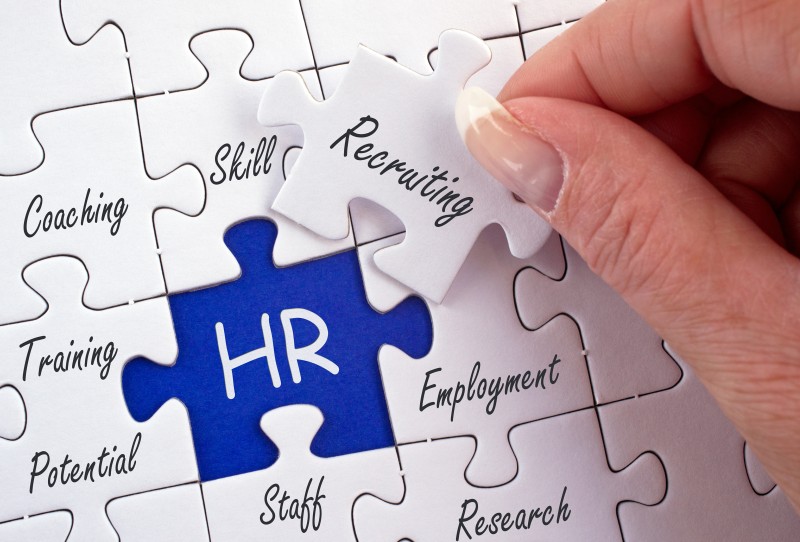
HR Employment Law
Introduction to HR Employment Law for Employers
As an employment lawyer specialising in HR employment law, I understand the key role it plays in the success of any business. This field encompasses a wide range of regulations and practices designed to ensure fair and legal treatment of employees. It’s crucial for employers, business owners and managers to grasp these concepts. Doing so not only mitigates legal risks but also fosters a positive workplace culture.
Understanding the Basics of Employment Law
At its core, employment law in the UK aims to balance the power between employers and employees. This includes ensuring fair recruitment processes, providing safe working conditions, and protecting against discrimination. Staying informed about these aspects is key to maintaining a compliant and ethical business environment.
The Importance of Compliance in the Workplace
Compliance is not just a legal requirement; it’s a cornerstone of business integrity. Adhering to employment law safeguards your business against costly legal disputes and enhances your reputation as a fair employer. This, in turn, attracts and retains top talent, contributing to the overall success of your business.
First Steps towards Legal Compliance
Begin by conducting a thorough review of your current HR practices and policies. Ensure they align with the latest legal standards. Regular training sessions for management and staff also play a crucial role in reinforcing these standards.
- Review employment contracts and workplace policies.
- Update your organisation’s discrimination and harassment policies.
- Ensure compliance with minimum wage and working hours legislation.
- Stay informed about changes in employment law.
- Consider regular legal audits by an HR employment law specialist.
Common HR Employment Law Challenges and Solutions
In my experience addressing HR employment law challenges proactively is crucial for maintaining a lawful and harmonious work environment.
Addressing Workplace Discrimination and Harassment
Workplace discrimination and harassment are among the most sensitive issues employers face. Develop clear policies that define unacceptable behaviour and establish firm procedures for handling complaints. This demonstrates your commitment to a respectful workplace.
Navigating Unfair Dismissal Claims
Unfair dismissal claims can be challenging. To avoid these, conduct all dismissals fairly and in accordance with established procedures. Document every step of the process to provide a clear record of the decision-making process.
Managing Employee Grievances Effectively
Effective grievance management is crucial. Listen to employee concerns and address them promptly. This not only resolves issues quickly but also shows your employees that you value their input and well-being.
- Develop clear anti-discrimination and harassment policies.
- Train your staff regularly on these policies.
- Establish fair and transparent disciplinary procedures.
- Encourage open communication to identify and resolve issues early.
- Seek legal advice when handling complex cases.
By addressing these challenges head-on and seeking expert guidance when necessary, you can create a workplace that is not only compliant with HR employment law but also thriving and productive.
Updating HR Policies: Staying Compliant with Current Laws
In my role as an employment law specialist, I emphasise the importance of keeping HR policies in line with the latest legal developments. This is not just a legal necessity; it’s a strategic imperative for any business. Regular updates to HR policies are critical in ensuring your organisation stays compliant and ahead of potential legal challenges.
Regular Review and Update of Policies
Employment laws evolve constantly, influenced by new legislation, court rulings and societal changes. Conduct regular audits of your HR policies to ensure they reflect these changes. This proactive approach not only minimises legal risks but also demonstrates your commitment to a fair and legal workplace.
Engaging with Legal Experts
Seeking guidance from legal experts specialising in HR employment law is a wise investment. They can provide insights into complex legal situations and help tailor your policies to fit your specific business needs. Their expertise can prove invaluable in complying with employment law.
Incorporating Employee Feedback
Employee input is a valuable resource in shaping effective HR policies. Engage with your staff to understand their perspectives and address any concerns they may have. This collaborative approach not only improves policy effectiveness but also enhances employee satisfaction and trust.
- Regularly review and update your HR policies.
- Consult with legal experts to ensure compliance.
- Engage employees in the policy development process.
- Communicate changes clearly and effectively to all staff.
- Train your management team on the implementation of new policies.
Employee Rights and Employer Responsibilities
As an employment law expert, I stress the importance of the balance between employee rights and employer responsibilities. This balance is crucial in creating a fair, productive and legally compliant workplace. Knowledge and respect of employee rights are fundamental to successful business management.
Understanding Employee Rights
Employees in the UK have legal rights, including fair wages, safe working conditions and freedom from discrimination. Employers must understand these rights thoroughly to ensure they do not inadvertently infringe upon them. Regular training and legal updates can help maintain this understanding.
Balancing Rights with Responsibilities
While respecting employee rights, employers also have responsibilities to uphold. These include providing a safe work environment, ensuring fair treatment and complying with employment contracts and workplace policies. Balancing these rights and responsibilities is key to a harmonious workplace.
Legal Implications of Non-Compliance
Failure to comply with employment law can lead to serious legal consequences, including fines, legal action and reputational damage. It’s imperative for employers to stay informed and compliant to avoid these pitfalls.
- Understand and respect employee rights as outlined by law.
- Regularly update your knowledge of employment law.
- Maintain a safe and fair working environment.
- Handle breaches of employee rights with immediate attention.
- Seek legal advice when in doubt about compliance issues.
By prioritising the understanding of employee rights and balancing them with employer responsibilities, businesses can foster a respectful, productive, and legally sound workplace.
Handling Disputes: Legal Advice for Employers
In my practice as an employment law specialist, I have seen how effectively handling disputes is crucial for maintaining a harmonious workplace. Disputes, if left unresolved, can escalate, affecting morale and productivity and potentially leading to costly legal battles. Here, I offer practical advice for navigating these waters with a focus on HR employment law.
Proactive Dispute Resolution Strategies
Prevention is always better than cure. Implementing clear communication channels and effective grievance procedures can prevent many disputes from escalating. Training your management team in conflict resolution and mediation skills is also beneficial. These proactive steps can often resolve issues before they become formal disputes.
Legal Considerations in Dispute Handling
When disputes arise, handle them in accordance with established legal frameworks. This includes respecting the rights of all parties involved and following fair procedures as outlined by HR employment law. Documentation is key; keep detailed records of all stages of the dispute resolution process.
Seeking Professional Legal Advice
In complex cases, seeking advice from an employment law expert is prudent. This ensures that your approach is legally sound and can help in identifying the most effective resolution strategy. An external perspective can also provide a neutral view, which is often helpful in resolving disputes.
- Develop clear and fair grievance procedures.
- Train managers in conflict resolution and mediation.
- Document all steps taken in the dispute resolution process.
- Respect the legal rights of all parties involved.
- Seek legal advice for complex disputes.
Future Trends in HR Employment Law
As an experienced employment lawyer, I recognize the dynamic nature of HR employment law. Keeping abreast of emerging trends and potential legislative changes is crucial for employers. This foresight not only ensures compliance but also prepares businesses for future challenges in the workplace. See HR Advice for Employers.
Emerging Trends in Employment Law
Recent years have seen significant shifts in employment law, influenced by technological advancements, changes in work patterns, and societal movements. Topics like remote working policies, data protection in the digital age, and diversity and inclusion are becoming increasingly prominent. Staying informed about these trends is essential for modern businesses.
Preparing for Future Changes
Anticipating and preparing for changes in employment law can give your business a competitive edge. This includes revising policies in anticipation of legal changes, investing in ongoing staff training, and seeking regular legal consultations. Such preparation ensures your business remains agile and compliant in a rapidly evolving legal landscape.
- Stay informed about technological and societal changes affecting employment law.
- Regularly review and update your policies to reflect emerging trends.
- Invest in ongoing training for your staff on new legal developments.
- Consult with employment law specialists for insights into future changes.
- Adopt a proactive approach to legal compliance and workplace policies.
By staying informed about future trends and preparing accordingly, employers can ensure they not only comply with current HR employment law but are also ready for future developments.
Call John Bloor at EBS Law on 01625 87 4400 if you are an employer and need free Employment Law Advice.

